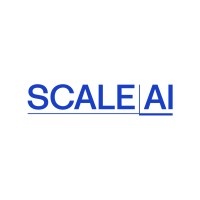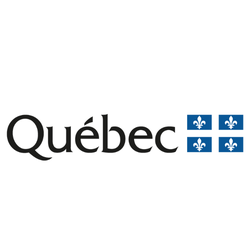
Closed
DEL — Expertise Financing Grant
Last Update: October 27, 2025
Longueuil, QC
Upgrade your browser for optimal website experience
Grant and Funding
At a glance
Funding available
Financing goals
Integrate new technologies
Improve employee retention
Reduce the ecological footprint
See more
Eligible Funding
- Maximum amount : 100,000 $
- Up to 50% of project cost
Timeline
- Open Date : January 1, 2023
- Closing date : December 31, 2023
Eligible candidates
Eligible Industries
- Manufacturing
- Transportation and warehousing
- Professional, scientific and technical services
- Administrative and support, waste management and remediation services
- Health care and social assistance
- Other services (except public administration)
- Public administration
Location
- Longueuil
Legal structures
- Non-profit
- Public or Parapublic institution
- For-profit business
- Social economy enterprise
Annual revenue
- All revenue ranges
Organisation size
- 200 employees maximum
Audience
- Startups
Non-profit candidates
Sector of operation
- Social Services
- Environment
- Economic, Social and Community Development
- Employment and Training
- Business Associations
- Diversity and Inclusion
Target groups
- General public
- Children & youth
- New immigrants & refugees
- Business owners / entrepreneurs
- Nonprofits / charities
- Low-income individuals / families
Revenue structures
- All structures
Scope
- Local
- Municipal
- Regional
Overview
The Subvention for Financing Expertise provides non-reimbursable financial assistance up to $20,000, covering 50% of professional external fees associated with business projects. Eligible activities include technological validation, market validation, profitability diagnostics, operational efficiency, human resource management, strategic planning, and related professional legal and architectural fees. This program aims to support businesses established or intending to establish in Longueuil in minimizing market and technical risks, ultimately fostering job creation and retention.
Activities funded
- Launching or expanding a business within eligible sectors in the Longueuil agglomeration.
- Innovation and digital transformation initiatives for business growth.
- Projects focused on sustainable development and implementing eco-friendly business practices.
- Development or support of social economy enterprises addressing social, cultural, or environmental needs.
- Attracting or retaining significant business investments and jobs within the Longueuil territory.
Examples of admissible projects:
$ 20,000
Legal and architectural fees for a new community center
$ 20,000
Profitability diagnostics for a tech startup focused on AI solutions
$ 15,000
Optimizing operational efficiency for a community healthcare cooperative
$ 20,000
Conducting market validation activities for new eco-friendly packaging products
$ 17,500
Strategic planning for expanding a local arts non-profit organization
$ 14,000
Human resource management optimization for a local restaurant chain
Eligibility
- The applicant must be a legally incorporated for-profit business or an organization recognized as a social economy enterprise (as per the Loi sur l’économie sociale), located within the agglomeration of Longueuil (Boucherville, Brossard, Longueuil, Saint-Bruno-de-Montarville, Saint-Lambert). Businesses with establishments in these cities but headquartered elsewhere are eligible if the project’s main economic and employment benefits occur in Longueuil’s agglomeration.
- The company must operate in a sector not excluded by the program (notably, most retail and restaurant activities are excluded unless the business is a social economy enterprise).
- The company must demonstrate sound viability and medium-term profitability prospects.
- The applicant must have more than 18 years old, be a Canadian citizen or permanent resident with their primary residence in Quebec, and must have full decision-making control of the business and work in it full-time.
- The business must not be in litigation, in default with any of the agglomeration’s municipalities, the Quebec or Canadian governments, or any creditors.
Who is eligible?
- Manufacturing, assembly, and fabrication industries
- Aerospace sector
- Life sciences (biopharmaceuticals, medical technologies, natural health products)
- Agri-food and biofood processing industries
- High technology and information and communication technology companies
- Transport and logistics (with some exclusions)
- Business services (with some exclusions)
- Social economy enterprises (including service to individuals)
Who is not eligible
- Businesses in the retail and restaurant sectors, except for social economy enterprises.
- Companies in controversial sectors such as those with sexual, religious, political, or speculative activities.
- Financial sector businesses and financial cooperatives.
- Franchises, banners, licensees, or companies with apparent economic dependency.
- Companies whose main revenues come from commission sales or that act as exclusive subcontractors for a single client.
Eligible expenses
- Direct fees for specialized professional expertise (consulting services) necessary for project execution.
- Costs related to studies (market research, certifications, process evaluations, patent acquisitions) and drafting of technical specifications.
- Salaries, social charges, and benefits for staff directly assigned to the project (provided these are not claimed under other government programs; project management and coordination fees capped at 10% of the total project cost).
- Acquisition of equipment and specialized IT tools from non-affiliated suppliers.
- Rental of equipment and licenses for the project’s duration (up to one year).
- Travel expenses directly linked to the project.
- Transport costs for equipment and materials.
- Commercialization and marketing expenses related to the project.
- Costs for protection of intellectual property rights.
- External costs for testing and certification.
- Specialized services and subcontracting (such as research, prototyping, machining).
- Acquisition of equipment, including equipment for collective use.
- Any other costs essential to the project’s activities, subject to DEL’s approval.
Eligible geographic areas
- Boucherville
- Brossard
- Longueuil
- Saint-Bruno-de-Montarville
- Saint-Lambert
- Companies outside the agglomeration of Longueuil with an establishment in the area and whose project's main economic and employment impacts occur within the agglomeration of Longueuil
Selection criteria
- Alignment with the intervention priorities identified by the agglomeration of Longueuil.
- Assessment based on a project evaluation grid.
- Consideration of the social and economic impacts on the territory.
- Availability of funds for the proposed project.
How to apply
1
Verification of conditions
2
Preparation of the request
- Write a detailed project proposal outlining the objectives, expected outcomes, and the impact of the project.
- Gather all necessary supporting documents, including financial statements and any other relevant documents according to the grant requirements.
- Prepare the financial setup of the project.
3
Submission of the request
- Visit the DEL website and consult the "Call for Projects" page to obtain the forms and instructions.
- Submit your duly signed application electronically on the site www.delagglo.ca, Call for Projects page.
4
Acknowledgment of receipt
Wait to receive the electronic acknowledgment of receipt from DEL within two working days following the submission of your application.
Additional information
- Recipients must agree to provide visibility to DEL, including allowing the use of their company name in DEL’s annual report and communications.
- All data and supporting documentation required by DEL must be provided upon request, including financial statements and project details.
- Confidentiality of information submitted is governed by the relevant Quebec legislation, with an explicit commitment required from DEL's evaluation committee members.
- No application or processing fees are required when submitting a request for funding.
Apply to this program
Frequently Asked Questions about the DEL — Expertise Financing Grant Program
Here are answers to the most common questions about the DEL — Expertise Financing Grant. This section explains what the program is, how much funding is available, eligibility requirements, application deadlines, and other important details to help you determine if this grant is right for your business.
What is the DEL — Expertise Financing Grant?
How much funding can be received?
What is the deadline to apply?
Who is eligible for the DEL — Expertise Financing Grant program?
What expenses are eligible under DEL — Expertise Financing Grant?
Who can I contact for more information about the DEL — Expertise Financing Grant?
Where is the DEL — Expertise Financing Grant available?
Apply to this program
More programs like this

Grant and FundingClosed
PSCE – Component 2
Investissement Québec (IQ)Non-repayable funding to support SMEs’ export market diversification

Grant and FundingClosed
MAPAQ — Food Processing Program — Component 2
Ministry of Agriculture, Fisheries and Food (MAPAQ)Enhancing productivity through food industry automation assistance

Grant and FundingOpen
SCALE AI — Acceleration
Scale AI ClusterSupports Canadian AI startups and SMEs focused on value chains

Tax CreditsOpen
Development of E-Business Tax Credit (CDAE)
Investissement Québec (IQ)Tax credit for development of a Quebec e-business

Tax CreditsOpen
Research, Innovation and Commercialization Tax Credit (CRIC)
Gouvernement du QuébecRefundable tax credit for Quebec business R&D and precommercialization

Grant and FundingOpen
Support for biofood exports - individual projects
Ministry of Agriculture, Fisheries and Food (MAPAQ)SEB supports Quebec agri-food market expansion outside Quebec

Grant and FundingOpen
ÉcoPerformance — Recommissioning of building mechanical systems
Gouvernement du QuébecFunding to optimize the operation of building mechanical systems

Grant and FundingSuspended
Individual Market Access Support (SIAM)
Aliments du QuébecMarket Access Support for Quebec Food Processors

Expert AdviceLoans and Capital investmentsOpen
Panorama Program
Investissement Québec (IQ)Supports export diversification with financial services and expert guidance

Loans and Capital investmentsOpen
Financing to respond to the offensive of new tariffs and for initiatives for resilient and exporting companies (FRONTIERE)
Investissement Québec (IQ)Supports Québec exporters impacted by new U.S. tariffs
Sign up to our platform to access the DEL — Expertise Financing Grant information sheet for free
Get access to 4,000+ programs, practical guides, personalized alerts, and an AI assistant to support your grant applications.